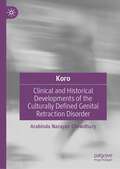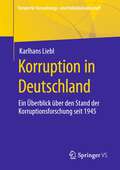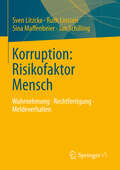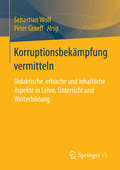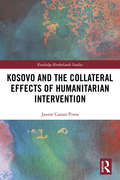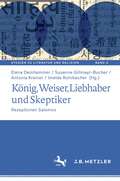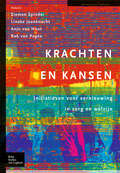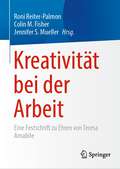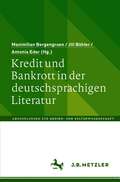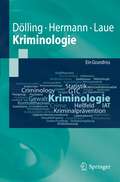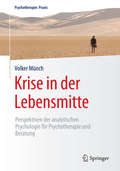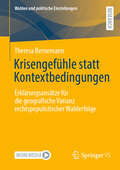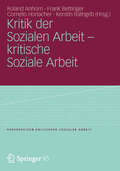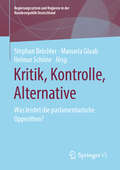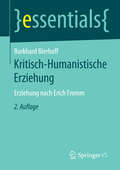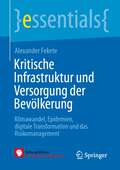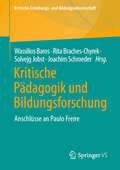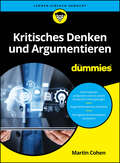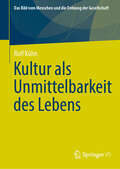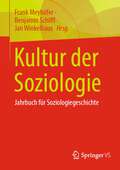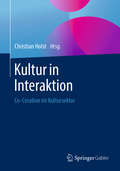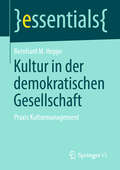- Table View
- List View
Koro: Clinical and Historical Developments of the Culturally Defined Genital Retraction Disorder
by Arabinda Narayan ChowdhuryThis book provides a definitive account of koro, a topic of long-standing interest in the field of cultural psychiatry in which the patient displays a fear of the genitals shrinking and retracting. Written by Professor A.N. Chowdhury, a leading expert in the field, it provides a comprehensive overview of the cultural, historical and clinical significance of the condition that includes both cutting-edge critique and an analysis of research and accounts from the previous 120 years published literature. The book begins by outlining the definition, etymology of the term, and clinical features of koro as a culture-bound syndrome, and contextualizes the concept with reference to its historical origins and local experience in Southeast Asia, and its subsequent widespread occurrence in South Asia. It also critically examines the concept of culture-bound disorder and the development of the terminology, such as cultural concepts of distress, which is the term that is currently used in the DSM-5. Subsequent chapters elaborate the cultural context of koro in Chinese and South Asian cultures, including cultural symbolic analysis of associations with animals (fox and turtle) and phallic imagery based on troubling self-perceived aspects of body image that is central to the concept. The second section of the book offers a comprehensive, global literature review, before addressing the current status and relevance of koro, clinically relevant questions of risk assessment and forensic issues, and research methodology.This landmark work will provide a unique resource for clinicians and researchers working in cultural psychiatry, cultural psychology, anthropology, medical sociology, social work and psychosexual medicine.
Korruption in Deutschland: Ein Überblick über den Stand der Korruptionsforschung seit 1945 (Forum für Verwaltungs‐ und Polizeiwissenschaft)
by Karlhans LieblDas Buch führt die wichtigsten Strömungen der Korruptionsforschung seit 1945 auf. Ein besonderes Augenmerk wird dabei auf die deutsche Forschungslandschaft gelegt. Weitere Schwerpunkte sind die Untersuchungen zum Umfang der Korruption, methdoische Probleme der Erhebung von Daten zur Korruption und Präventionsvorschläge. Letzterer Gesichtspunkt hat wieder einen besonderen Blick auf Deutschland. Abschließend werden die bisherigen Forschungen bewertet und Forderungen für zukünftige Untersuchungen dargelegt.
Korruption: Risikofaktor Mensch
by Ruth Linssen Sven Litzcke Jan Schilling Sina MaffenbeierKorruption ist eine ernstzunehmende Gefährdung für staatliche und ökonomische Systeme. Untersucht werden im vorliegenden Buch daher Wahrnehmungen und Bewertungen von Korruption bis hin zu Rechtfertigungsstrategien und Meldeverhalten in drei verschiedenen Bereichen: Wirtschaft, öffentliche Verwaltung und Sozialwesen. Untersuchte Kausalfaktoren von Korruption sind dabei zum einen Personenfaktoren wie Organisationaler Zynismus, Psychopathie und Intelligenz und situative Faktoren wie Vorteilsgröße, Dauer der Korruptionsbeziehungen oder Gruppen von Nutznießen der Korruptionshandlung. Ein Ergebnis der Untersuchungen ist, dass Korruptionshandeln auf dem Weg zum Kavaliersdelikt ist und zwar trotz der öffentlichen Ächtung von Korruption. Ebenso bietet die interdisziplinär angelegte Studie jedoch auch praktische Ansatzpunkte zur Korruptionsprävention und zur Förderung aktiven Meldeverhaltens bei Mitwisserschaft.
Korruptionsbekämpfung vermitteln: Didaktische, ethische und inhaltliche Aspekte in Lehre, Unterricht und Weiterbildung
by Sebastian Wolf Peter GraeffDer Band widmet sich der Vermittlung von Kompetenzen und Wissen zu den Themen Korruption und Korruptionsbekämpfung in unterschiedlichen Bildungseinrichtungen und Wissenschaftsdisziplinen. Es werden übergreifende methodische, empirische und theoretische Themen ebenso behandelt wie verschiedene Anwendungsfelder und Veranstaltungsformate. Die Bereiche Verwaltung, Wirtschaft und Zivilgesellschaft werden praxisnah angesprochen. Der Sammelband schließt eine Lücke in der wissenschaftlichen Korruptionsliteratur, die bisher überwiegend die Forschung, aber kaum die Perspektive der Wissensvermittlung in unterschiedlichen Kontexten thematisiert hat.
Kosovo and the Collateral Effects of Humanitarian Intervention (Routledge Borderlands Studies)
by Jaume Castan PinosHumanitarian intervention is rising ever higher in international relations discourse, with many publications exploring the nature, legality and success of these interventions. However, less attention is given to what happens after an intervention. This book looks in particular at the implications for territorial and border relations, exploring the case of Kosovo, which in many ways can be seen as a turning point in post-cold war international humanitarian intervention. The 1999 intervention has had significant consequences for Kosovo in terms of political transformations, territorial alterations and enclavisation, none of which was officially intended or foreseen when NATO intervened. Two decades after NATO’s intervention and a decade after unilaterally declaring independence, Kosovo continues to be confronted with daunting existential challenges that inevitably affect the stability of the region, border relations, and the credibility of the organisations operating within Kosovo, namely the UN, the EU and NATO. The book claims that not only is the political and territorial conflict far from being settled, but that the implications have gone beyond Kosovo, creating shock waves which have galvanised conflicts elsewhere. In effect, Kosovo has been used as a pretext, as a legitimation and as an inspiration for those who aspire to challenge the border status quo. The book is primarily aimed at undergraduate and postgraduate students of International Relations and Political Science and as well as Border Studies scholars, but will also appeal to researchers focusing on state-building, peace-building, humanitarian studies, nationalism/secessionism and Balkan studies.
König, Weiser, Liebhaber und Skeptiker: Rezeptionen Salomos (Studien zu Literatur und Religion / Studies on Literature and Religion #4)
by Susanne Gillmayr-Bucher Elena Deinhammer Antonia Krainer Imelda RohrbacherKaum eine andere biblische Figur wird so enthusiastisch geschildert wie König Salomo. Er ist unvergleichlich weise, erbaut den Tempel in Jerusalem, und er verhilft auch seinem Volk zu einem Leben in Frieden und Wohlstand. Dennoch scheitert Salomo und erfüllt die in ihn gesetzten Erwartungen letztendlich nicht. Dadurch entsteht ein ambivalentes Bild, das innerhalb des biblischen Kanons und in der späteren Rezeptionsgeschichte vielfältig ausgestaltet wird. Wie facettenreich die Figur Salomos vom 16. bis 21. Jahrhundert in Literatur und Musik entfaltet wird, zeigt dieser Band auf. Die Beiträge im ersten Teil bieten überblicksartige Querschnitten, die Salomo als König, Weisen, Skeptiker und Liebenden in den künstlerischen Bearbeitungen präsentieren. Die Studien im zweiten Teil zeigen am Beispiel ausgewählter Werke, welche Diskurse der jeweiligen Zeit in der Figur König Salomos gespiegelt werden.
Krachten en kansen: Initiatieven voor vernieuwingin zorg en welzijn (Methodisch werken)
by M. van der Weijde-van der Helm L. Joanknecht S. Spinder A.J. van Hout R. van PageeKrachten en kansenHoe kunnen professionals, vrijwilligers en studenten in de sociale beroepen worden getraind om besluitvorming door de cliënt zelf, samenhang met zijn familie en sociele netwerk, een structurele plaats te geven in de methodiek? Dat is de vraag die central in dit doek. Om een antwoord te formuleren verkent krachten en kansen uiteenlopende onderwerpen als burgerschap, vraaggericht werken, empowerment, macht en zeggenschap, activering en professionalisering venuit het perspectief van het welzijnwerk.In het denken over sociale vernieuwing zijn autonomie’ en eigen verantwoordelijkheid’ op dit moment de kernbegrippen. Hulp en dienstverlenders worden in dit boek uitgedaagd om sociale kwesties op een andere manier te benaderen, en op zoek te gaan naar de kracht en kennis die aanwezing zijn in de samenleving, Aan de hand van praktijkvoorbeelden op verschillende terreinen (zoals sociale vernieuwing, gezinnen in armoede veilige school, cohesie in de buurt, opvang van ouderen, problemen in gezinnen) is er aandacht voor autonomie en ondersteuning venuit empowerment.
Krass! Beauty-OPs und Soziale Medien (Essays zur Gegenwartsästhetik)
by Daniel HornuffBeauty-OPs boomen. Weltweit. Und dies nicht zuletzt durch den Aufstieg der Sozialen Medien. Instagram, Facebook und YouTube haben die Körperkultur grundlegend verändert. Heute präsentieren sich Millionen Menschen in Bildern, und ebenso viele betrachten und bewerten diese Bilder. Entsprechend groß ist das Bedürfnis, den Körper ästhetisch zu optimieren, ihn als „krasses“ Ereignis in Szene zu setzen. Vor dem Auftritt im Bild steht daher zunehmend die Arbeit am eigenen Fleisch.Zentral ist die Frage der Gestaltung: Welche Schönheitsnormen werden aufgebaut? Welche verworfen? Wie ist zu erklären, dass solche Operationen einerseits florieren – es andererseits aber noch immer einem Outing gleicht, sich zu ihnen zu bekennen? Welche Vorstellungen von Öffentlichkeit und Intimität, von Geschlecht und Sexualität, von Kultur und Natur werden dabei verhandelt?Ein Essay über die Frage, wie tief das Design in Körper eingreift – und wie sich das Label „krass“ zu einer neuen ästhetischen Kategorie entwickeln konnte.
Kreativität bei der Arbeit: Eine Festschrift zu Ehren von Teresa Amabile
by Colin M. Fisher Roni Reiter-Palmon Jennifer S. MuellerDieses Buch bringt führende Wissenschaftler auf dem Gebiet der Kreativität zusammen, um einen Überblick und eine Untersuchung der Arbeit von Teresa Amabile, einer Pionierin der Forschung über organisatorische Kreativität, zu geben. Die Autoren untersuchen die Beiträge von Dr. Amabile zum modernen Studium der Kreativität in Organisationen und ihren Einfluss auf die aktuelle Forschung. Darüber hinaus reflektieren sie, wie ihre Arbeit genutzt werden könnte, um die zukünftige Forschung voranzutreiben, insbesondere in den Bereichen der Komponententheorie und ihrer Erweiterung sowie der konsensuellen Bewertungstechnik. Die Beiträge der Autoren, zu denen sowohl renommierte als auch aufstrebende Wissenschaftler gehören, spiegeln die Breite des Einflusses von Teresa Amabiles Arbeit in den Bereichen der Sozialpsychologie der Kreativität, der Kreativitätsmessung und der Anwendung dieses Wissens auf das Verständnis von Kreativität und Innovation am Arbeitsplatz wider. Dieses Buch ist ein unschätzbares Hilfsmittel für Studenten und Wissenschaftler der Sozialpsychologie, der Kreativitätsforschung, der Arbeits- und Organisationspsychologie, der Wirtschaft und des Managements.
Kredit und Bankrott in der deutschsprachigen Literatur (Abhandlungen zur Medien- und Kulturwissenschaft)
by Jill Bühler Maximilian Bergengruen Antonia EderDer Band geht wissenshistorischen Beziehungen von Literatur und Ökonomie nach, indem er die kulturwissenschaftlich noch kaum diskutierten Begriffsfelder Kredit und Bankrott fokussiert. Finanzpolitische Diskussionen bilden den hochaktuellen wie tiefenhistorischen Einsatzpunkt: Als ambigue Kippfigur zwischen Spekulation und Zutrauen sind Kredit und Bankrott ebenso Prinzip der Ökonomie wie Operation literarischer Produktions- und Wirkungsästhetik. Kulturhistorische Konstellationen von Finanzwirtschaft und Literatur werden so nicht allein inhaltlich thematisch, sondern bilden ästhetische Fakturen, die sich durch das Spannungsverhältnis von Glauben, Ruin, Überschuss oder Kollaps generieren und Literatur wissenspoetisch dynamisieren.
Kriminologie: Ein Grundriss (Springer-Lehrbuch)
by Dieter Hermann Christian Laue Dieter DöllingDas Lehrbuch vermittelt die Grundlagen der Kriminologie (Begriff, Geschichte und Methoden), erläutert die Kriminalitätstheorien und arbeitet zentrale Befunde zum Verbrechen, zu Tätern und Opfern von Verbrechen sowie zur Verbrechenskontrolle (Kriminalprävention und Strafrechtspflege) heraus. Sodann werden wichtige Deliktsbereiche unter kriminologischen Gesichtspunkten dargestellt. Statistische und methodische Grundlagen empirisch-kriminologischer Untersuchungen werden jeweils berücksichtigt.
Krise in der Lebensmitte
by Volker MünchIn diesem Buch werden die Chancen und Risiken der vielbesprochenen „midlife-crisis“ thematisiert – Therapeuten und Berater erhalten Anregungen für ihre Arbeit und Selbstreflektion. Die unterschiedlichen Formen, die die Durchbrüche des Unbewussten im Alltag von Männern und Frauen annehmen, werden auch anhand klinischer Beispiele genauer untersucht. Wie kann die Jung‘sche Sichtweise dabei helfen, die Hinweise des Unbewussten in kreativer, geduldiger, oft überraschender Weise zu entschlüsseln, zu integrieren und zu nutzen? Diesen Fragen geht der Autor in therapeutischer, persönlicher und gesellschaftlicher Hinsicht nach. Geschrieben für Psychologische Psychotherapeuten, Ärztliche Psychotherapeuten, Berater, Seelsorger. Interessierte Laien können mitlesen.Aus dem InhaltWas ist eine „midlife-crisis“? – Überblick über ein facettenreiches Phänomen – Die Vorstellung des „Puer“ und des „Senex“ – Der Wandel und das „neue Leben“ – Krise als Schwellensituation – Eros und Wandlung – Die Psychologie C.G. Jungs -– Die Therapie der midlife-crisis – Liebe, Körper und Sex und die Lebensmitte – Die Krise unserer Zeit und die Krise der Lebensmitte – Generationalität – Kultur und Lebensmitte – Individuelle Wege zur Lebensmitte.Der Autor Dipl.-Psych. Volker Münch, Psychoanalytiker, eigene psychotherapeutische Praxis in München, Dozent am C.G. Jung-Institut München und C.G. Jung-Institut Stuttgart, Lehranalytiker und Supervisor.
Krisengefühle statt Kontextbedingungen: Erklärungsansätze für die geografische Varianz rechtspopulistischer Wahlerfolge (Wahlen und politische Einstellungen)
by Theresa BernemannIn diesem Buch werden die geografischen Unterschiede in der Unterstützung der Alternative für Deutschland (AfD) 2017-2018 untersucht. Ziel ist es, diese Unterschiede zu erklären und die zugrunde liegenden Mechanismen zu verstehen. Der Fokus liegt dabei auf dem Einfluss kleinräumiger Kontextfaktoren und der Rolle individueller Wahrnehmungen, insbesondere sogenannter „Krisengefühle“. Dabei wird der Effekt einer Vielzahl kleinräumiger Kontextfaktoren untersucht, Mechanismen zwischen Kontext- und Individualebene analysiert und mögliche Moderationseffekte von Kontexteinflüssen durch individuelle und regionale Merkmale überprüft. Die Untersuchung zeigt, dass kleinräumige Kontextfaktoren rechtspopulistisches Wahlverhalten nur begrenzt beeinflussen. Viel entscheidender sind Krisengefühle, die den Einfluss des Kontexts auf das Wahlverhalten vermitteln. Subjektive Wahrnehmungen und emotionale Reaktionen spielen somit eine zentrale Rolle bei der Erklärung der geografischen Varianz der AfD-Unterstützung.
Kritik der Sozialen Arbeit - kritische Soziale Arbeit (Perspektiven kritischer Sozialer Arbeit #12)
by Roland Anhorn Frank Bettinger Cornelis Horlacher Kerstin RathgebEine Soziale Arbeit, die für sich 'Kritik' bzw. 'kritisch' als konstitutive Bestandteile ihrer Selbstbeschreibung reklamiert, muss sich der – nie abgeschlossenen – Zumutung einer Selbstvergewisserung aussetzen, die auf die systematische Reflexion der gesellschaftlichen Bedingungen, den sozialen Ort, die Funktion, die Folgen und den Inhalt von 'Kritik' gerichtet ist. Die Notwendigkeit, in eine neue Phase der Selbstreflexion kritischer Sozialer Arbeit einzutreten, stellt sich umso mehr, als im Zuge der neoliberalen Restrukturierung der Gesellschaft und der sie begleitenden Theorie- und Wissensproduktionen 'Kritik' nicht nur ihre Selbstverständlichkeit verloren hat. 'Kritik' in einem substanziellen Sinne ist darüber hinaus in ihren wissenschaftlichen Bekundungen nahezu beliebig und ihren praktischen Konsequenzen weitgehend unverbindlich geworden. Vor diesem Hintergrund macht es sich der Sammelband zur Aufgabe, die – durchaus kontroversen – Grundlagen für einen substanziellen Begriff von 'Kritik' zu entwickeln.
Kritik – Intervention – Transformation: Feministische Widerständigkeit im hegemonialen Geschlechterdispositiv
by Jördis GrabowFeministische Bewegungen und ihre diversen widerständigen Praktiken haben in den vergangenen Jahren wieder an Sichtbarkeit gewonnen. Neben Protest- und Aktionsformen lassen sich auch zahlreiche Praktiken finden, die das Alltagsleben feministischer Akteur*innen prägen. Charakteristisch vereinen die heterogenen feministischen Widerstände Kritik-, Interventions- und Transformationspraktiken, die das hegemoniale Geschlechterdispositiv sowie realwirksame Hervorbringungen hinterfragen, angreifen und verändern. Die Autorin untersucht in ihrer explorativen Studie verschiedene Widerstandspraktiken und analysiert deren Bedeutung für gesellschaftliche Wandlungsprozesse. Bildet Geschlecht weiterhin die zentrale Bezugsdimension innerhalb feministischer Bewegungen? Wie definieren Feminist*innen die Kategorie Geschlecht und in welchem Verhältnis stehen ein theoretisches Geschlechterwissen, die feministische Praxis und das feministische Subjekt zueinander?
Kritik, Kontrolle, Alternative: Was leistet die parlamentarische Opposition? (Regierungssystem und Regieren in der Bundesrepublik Deutschland)
by Manuela Glaab Stephan Bröchler Helmar SchöneDieses Buch schließt eine bedeutsame Lücke der politikwissenschaftlichen Forschung. Was sind Handlungsspielräume und -restriktionen der Minderheit im Parlament heute? Inwiefern gelingt es der parlamentarischen Opposition, ihre Kritik-, Kontroll- und Alternativfunktionen gegenüber der Regierung zu erfüllen? Angesichts der „Mini-Opposition“ der vorigen und einer in vier Fraktionen gespaltenen Opposition in der laufenden 19. Wahlperiode des Deutschen Bundestages gewinnen diese Fragen aktuell an zusätzlicher Bedeutung. Demokratietheoretische und empirische Analysen von Politikwissenschaftler*nnen und Einschätzungen erfahrener Abgeordneter zeigen die Chancen und Grenzen effektiver Opposition in Deutschland auf.
Kritisch-Humanistische Erziehung: Erziehung nach Erich Fromm (essentials)
by Burkhard BierhoffKann Erziehung freie Menschen hervorbringen? In diesem "Erziehungs-Manifest" sollen einige Argumentationslinien Erich Fromms nachvollzogen und für die Pädagogik als Wissenschaft und Praxis erschlossen werden. Eine gelungene Erziehung im Sinne von Fromm hilft dem Menschen, eine authentische Identität zu entwickeln, fördert seine kritischen Fähigkeiten und unterstützt den kreativen Ausdruck seiner Persönlichkeit. Ziel ist der freie Mensch, der gegenüber Manipulation und Einschüchterung immun ist und sich mit Liebe und Vernunft der Welt zuwendet. Die Beschäftigung mit Fromm bietet für ein solches Erziehungskonzept viele produktive Anregungen.
Kritische Analysen zur sogenannten "Clankriminalität": Phänomenologische Betrachtungen und Konstitution eines sozialen Problems
by Alexander WollingerIm gegenwärtigen Diskursfeld „Clankriminalität“ sind das Deutungsschema, die Begrifflichkeit selbst und die Behandlung des Phänomens durch Innenressorts, Strafverfolgungs- und andere Behörden umstritten. Es herrscht eine intensive Auseinandersetzung um Fragen, die sich zwischen Über- und Unterschätzung des Phänomens, zwischen selbst verursachter oder „importierter“ Kriminalität sowie zwischen Null-Toleranz-Reaktionen des Rechtsstaats einerseits und der Diskriminierung ganzer Bevölkerungsgruppen andererseits bewegen. Vereinfacht dargestellt, besteht ein Konflikt zwischen den antagonistischen Ideen „harter“ und das Phänomen negierender Deutungsschemata. Der Sammelband soll einen wissenschaftlich dominierten, differenzierten, bzw. „moderaten“ Weg einschlagen, ohne die o. g. Gegenpole zu ignorieren. Das Ziel ist die fundierte Schließung bisheriger Erkenntnislücken und die Korrektur diskursiv verbreiteter Annahmen. Das Buch adressiert ein interessiertes Fachpublikum aus den Kriminal- und Sozialwissenschaften sowie der mittleren und höheren Führungsebene der Polizei und sozialen Arbeit bzw. der Kriminalprävention.
Kritische Infrastruktur und Versorgung der Bevölkerung: Klimawandel, Epidemien, digitale Transformation und das Risikomanagement (essentials)
by Alexander FeketeIn diesem essential beantworten Experten*innen die Frage, wie Gesellschaft und Kritische Infrastruktur bei neuen Anpassungen an den Klimawandel, an Pandemien oder die fortschreitende Digitalisierung interagieren. Die (zunehmende) Abhängigkeit des Funktionierens unserer Gesellschaft von Energie, Gesundheitswesen, Informationen, Trinkwasser und anderen Kritischen Infrastrukturen wird nicht nur im Alltag deutlich, sondern zunehmend auch im Krisenfall, wie der Covid-19-Pandemie oder den Flutereignissen 2021. Das essential eröffnet einen mehrperspektivischen Einblick in die Herausforderungen des Risikomanagements und zeigt Möglichkeiten zur Optimierung auf.
Kritische Pädagogik und Bildungsforschung: Anschlüsse an Paulo Freire (Kritische Erziehungs- und Bildungswissenschaft)
by Rita Braches-Chyrek Joachim Schroeder Wassilios Baros Solvejg JobstDer Band greift theoretische und methodische Ansätze Paulo Freires auf, dessen Kampf für Gerechtigkeit und Solidarität beispielhaft für eine radikale Kritik am bestehenden, postkolonialen neoliberalen System ist. In der Auseinandersetzung mit Freires Position der kritischen Erziehungswissenschaft eröffnen sich neue, die bisherigen Grenzen überschreitende Möglichkeiten.
Kritisches Denken und Argumentieren für Dummies (Für Dummies)
by Martin CohenEinfach gut argumentieren Kritisches Denken – die Fähigkeit, sich einen Überblick ??ber eine Situation oder ein Thema zu verschaffen, Informationen gezielt zu analysieren und sich dann ein fundiertes Urteil zu bilden – ist ??beraus wichtig in einer von vielen als un??bersichtlich empfundenen Zeit. Martin Cohen f??hrt Sie in dieses aufregende Thema ein und ergänzt die theoretischen Grundlagen um Beispiele und Übungen f??r die praktische Anwendung. Das Buch hilft Ihnen, Ihre Fähigkeit zu reflektierendem Denken zu entwickeln, Ihren Sinn f??r kritische Analysen zu verbessern und effektive Argumente herauszuarbeiten. Sie erfahren Was einen guten kritischen Denker ausmacht Wie Sie das kritische Denken und Argumentieren in der m??ndlichen und schriftlichen Praxis anwenden Wie Sie typische logische Fallstricke erkennen und vermeiden
Kultur als Unmittelbarkeit des Lebens (Das Bild vom Menschen und die Ordnung der Gesellschaft)
by Rolf KühnBestimmt man radikal phänomenologisch die Kultur als Subjekt wie Objekt ihrer selbst, dann beinhaltet dies eine jeweils gegebene Unmittelbarkeit des Lebens als Originarität aller subjektiv kulturellen Vollzüge. Dies wird methodisch in Auseinandersetzung mit empirischen wie transzendentalen Kulturanalysen wie bei Freud, Husserl, Henry und Derrida aufgegriffen, um sich danach inhaltlichen Manifestationen der Kultur wie Religion, Wissenschaft und Ästhetik zuzuwenden. Leitend bleibt dabei für die Zukunftsbestimmung unserer Kultur eine notwendige ko-pathische Aufmerksamkeit für das Leben, welche die Singularität aller kulturellen Vollzüge über die diskursive Begrenztheit eines rein objektivierenden Verständnisses hinaus am Werk sieht. Dabei wird auch dem Imaginären wie Fiktionalen ihr unumgehbares Recht eingeräumt, wie es besonders in der Kunst als Meta-Genealogie des Individuums und der Gemeinschaftlichkeit zum Ausdruck kommt.
Kultur der Soziologie: Jahrbuch für Soziologiegeschichte
by Benjamin Schiffl Frank Meyhöfer Jan WinkelhausDie mit diesem Sonderband versammelten Beiträge schlüsseln die Kultur der Soziologie soziologiegeschichtlich auf: Im Sinne der Kultivierungspraktiken der Soziologie nehmen sie in den Blick, in welchen institutionellen Arbeits- und Gesprächszusammenhängen sich soziologische Erkenntnisprozesse vollzogen haben. Sie geben damit Einblick in das historische Gewordensein der Kultur der Soziologie, so wie sie von Soziolog*innen je im Einzelfall verstanden und praktiziert wurde und – durch Anschlüsse wie Ausschlüsse gleichermaßen – wiederum als Nach- und Weitererzählungen in das disziplinäre Gedächtnis eingeht.
Kultur in Interaktion: Co-Creation im Kultursektor
by Christian HolstDieses Buch zeigt, warum ko-kreative Angebote und Prozesse im Kulturmanagement immer wichtiger werden, wie sie konkret aussehen und gestaltet werden können. Durch die Digitalisierung verschwinden die Grenzen zwischen Sender und Empfänger, zwischen Produzent und Konsument zusehends. Das wirft gerade für den angebotsorientiert denkenden Kultursektor viele Fragen auf: Wie wird diese Entwicklung unser Verständnis von Kultur, das Kulturangebot und die Kulturkommunikation verändern? Welche neuen künstlerischen und kommunikativen Formate und Formen entstehen? Wie können interaktive und ko-kreative Prozesse aus Managementperspektive gesteuert werden? Dieses Werk unternimmt eine erstmalige Annäherung an das Thema aus unterschiedlichen Perspektiven. Neben theoretisch orientierten Beiträgen wird das Potenzial von Co-Creation anhand von zahlreichen Fallbeispielen aufgezeigt.Zielgruppen: Kulturschaffende, Künstler, Kreative, Kulturpolitiker und Kulturwissenschaftler
Kultur in der demokratischen Gesellschaft: Praxis Kulturmanagement (essentials)
by Bernhard M. HoppeKulturmanagement gilt sowohl bei den Praktikern in den Kultureinrichtungen wie auch bei den Lehrenden und Forschenden vielfach nur als Hilfsmittel für die Finanzierung von kulturellen Aktivitäten. Bernhard M. Hoppe stellt klar, dass sich das Kulturmanagement von dieser Hilfsfunktion nach drei Jahrzehnten seiner Etablierung emanzipieren sollte. Er zeigt auf, wie das gesellschaftliche Umfeld der Kulturbetriebe im Fokus des Kulturmanagements stehen kann. Aus einer Ausrichtung auf die Bedürfnisse des Publikums ergeben sich umfangreiche und sich ständig wandelnde Herausforderungen, aber auch vielfältige Chancen.Der Autor: Prof. Dr. Bernhard M. Hoppe ist Referatsleiter in der Thüringer Staatskanzlei in der Abteilung Kultur und Kunst, verantwortlich für NS-Gedenkstätten, Gedenkstätten und Initiativen zur Aufarbeitung SED-Diktatur, Erinnerungskultur, Landeskunde, Literatur. Außerdem lehrt er an der Technischen Universität Kaiserslautern im Studiengang Management von Kultur- und Non-Profit-Organisationen.
